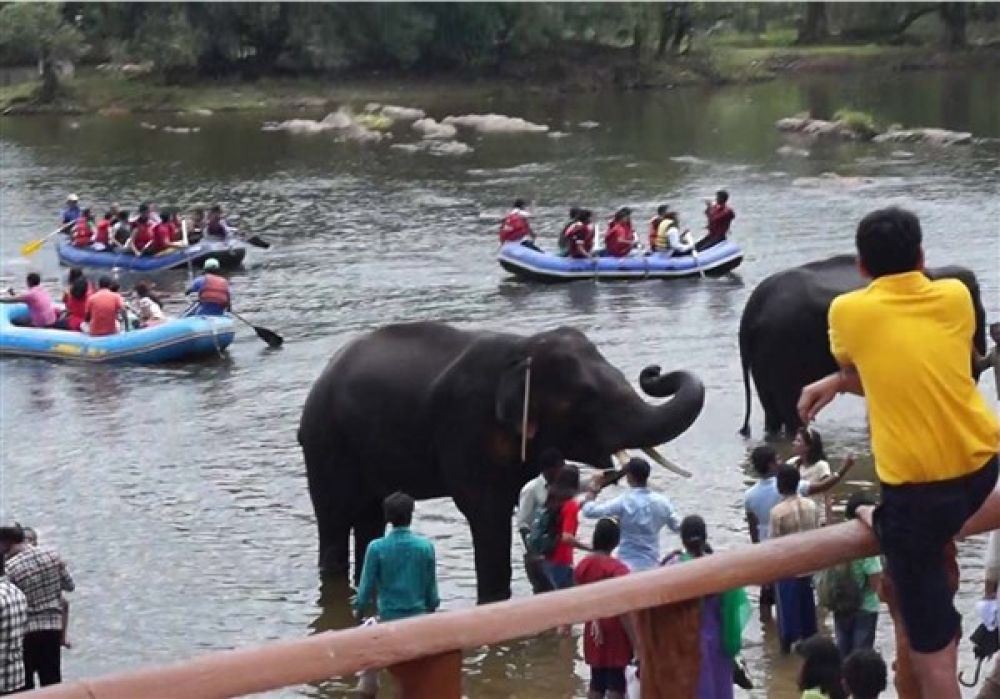

Located in the heart of Karnataka’s Kodagu district, Dubare Elephant Camp is a popular wildlife destination that has been attracting tourists for several years. The camp is situated on the banks of the beautiful river Cauvery and is renowned for its elephant interaction experiences.
Historically, Dubare was an important elephant capturing and training camp of the erstwhile Maharaja of Mysore. During the period of kings and colonial rule, the camp was used to train elephants for the Mysore Dussehra festival. The elephants were trained by local tribal people known as Kurbas. The expertise in capturing and taming the elephants was passed down through generations, entwining the camp's utility with rich cultural traditions.
The transition of Dubare Elephant Camp from a training camp to a tourism hotspot began when the practice of capturing elephants was discontinued. The change saw the initiation of conservation and protection efforts for these magnificent animals. In time, the camp evolved into a site where tourists could come and learn about the lifestyle, ecology, and biology of elephants.
The establishment gained popularity as eco-tourism began to take root in India. Tourists flock to Dubare not only to witness the elephants but also to partake in other activities such as river rafting, bird watching, and trekking in the lush forests surrounding the camp.
In recent years, with the rise of sustainable tourism, Dubare Elephant Camp has seen a shift in tourism trends. Opportunities to engage in activities that promote a deeper understanding and respect for wildlife have increased. The camp offers interactive sessions where visitors can observe and participate in the daily routines of elephants, such as bathing and feeding them.
Another recent trend in the realm of eco-tourism includes providing educational tours that emphasize the importance of conservation. The Camp has become a space for awareness, where foresters and naturalists provide valuable insights about elephants and their role in the ecosystem.
Likewise, the accommodation in and around Dubare has been designed to minimize environmental impact while maximizing visitor experiences. Traditional cottages and lodges using local architecture and materials blend seamlessly into the natural landscape, promoting the ethos of eco-friendly travel.
As travel preferences continue to evolve, Dubare Elephant Camp has managed to adapt by integrating conservation efforts with tourism. This synergy has made it a model destination for those looking to enjoy nature responsibly while learning about elephant conservation and supporting local communities.
Despite its success, Dubare Elephant Camp faces challenges common to many wildlife destinations, such as maintaining the balance between conservation efforts and tourist attractions. Ensuring that the elephants are not stressed by their interactions with tourists and that the natural environment remains pristine are ongoing concerns. The future of tourism here appears to be closely tied with innovative strategies that prioritize the well-being of wildlife and the environment while providing unmatched experiences for visitors.
The local authorities and conservationists are continually working to improve practices and introduce new guidelines to ensure Dubare remains a place where wildlife thrives and tourists continue to learn and enjoy responsibly.